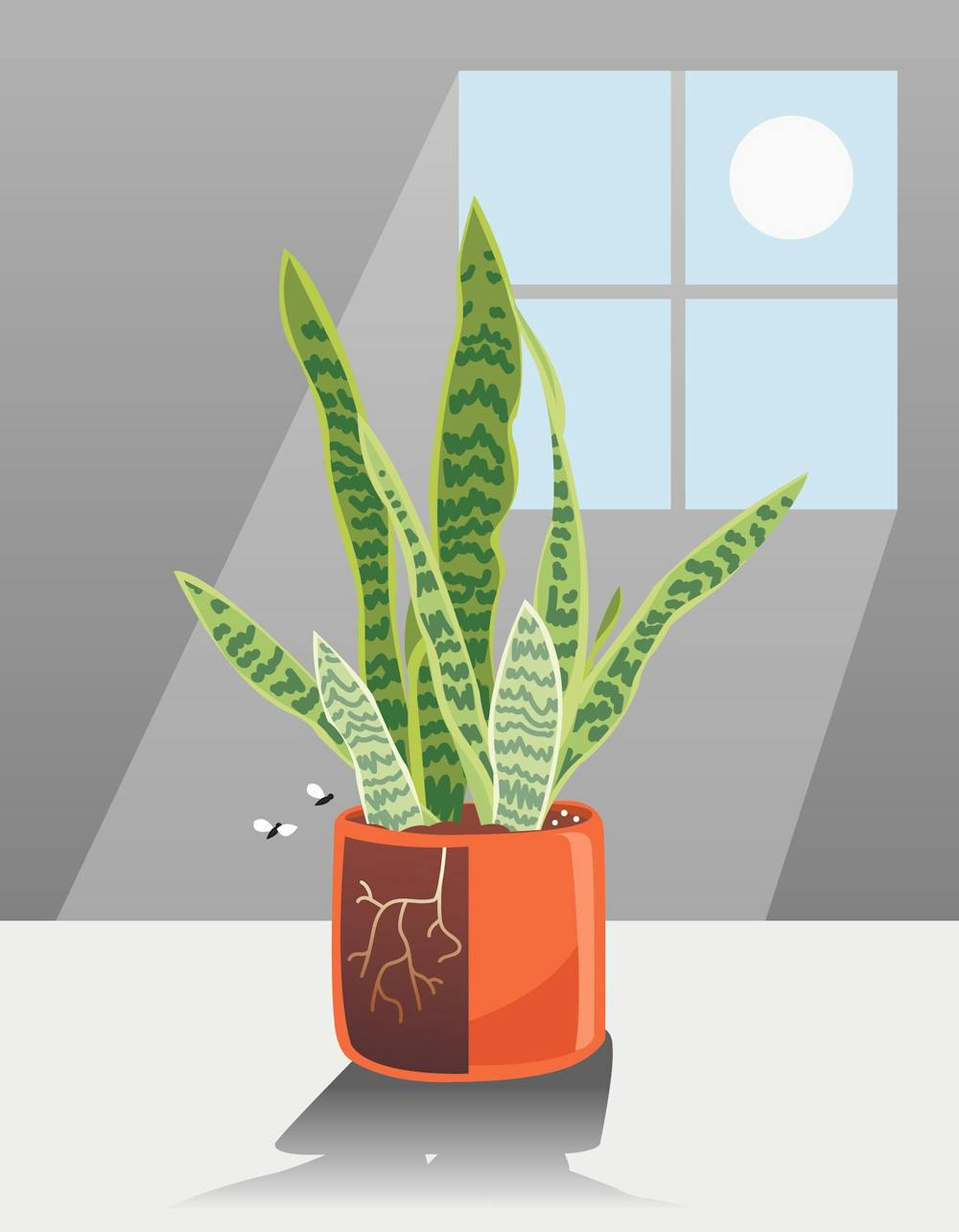Plants can be great companions for college students, especially low-maintenance ones such as the snake plant. However, it is often forgotten that houseplants need differing care during the winter, just like their outdoor counterparts. Here are a few things you can do to ensure your plants stay happy and healthy:
Reduce watering outside of growing season
As growing season comes to an end, plants stop creating new leaves and stems. According to Salisbury Greenhouse, plants need less water while not actively growing, and so continuing to water them the same amount as during the growing season can lead to root rot and other issues like fungus growth. You should make sure to reduce your watering frequency until growing season begins again in the spring.
Don’t fertilize during winter
According to Iowa State Horticulture News, fertilizing your houseplants during the winter will encourage growth the plant cannot support. Plants have limited energy during colder months since they have less sunlight. You should reduce your fertilizer, if not entirely stop it, for the duration of winter, giving your plants a break from growth.
Give it as much sunlight as possible
During the fall and winter months, reliable indoor sunlight can be hard to come by. Maximize your plant’s sun exposure by keeping it near a window that has a lot of sunlight each day, if possible. According to the U.S. Department of Energy, south-facing windows provide the longest and brightest light during the winter, so if you have a window in that direction, that would work well.
Beware of cold drafts by windows
If your windows are poorly insulated, plants next to the window can suffer from cold drafts during the winter. A good trick is to place a thick, dry towel in between the pot and the wall by the window it sits near, as the towel works as an insulator. Making sure to close curtains or blinds in front of the window at night can also help mitigate cold damage to plants nearby.
Don’t repot plants during the winter
Before you start with the, “But what if,” in an emergency, you should still repot a houseplant. However, it is a very unideal time of year, due to slowed growth and a lack of light and nutrients. Repotted plants during the winter are more likely to have problems or go into shock, so avoid doing so unless absolutely necessary.
Keep an eye out for pests
According to Salisbury Greenhouse, during the winter, houseplants are more vulnerable to pests due to stress from lower humidity, less light and slowed growth. Inspect your houseplants regularly for pests, such as mealybugs and aphids, and treat them as necessary. You can find many treatment guides for every variety of pest online. Always quarantine any infested plants if possible, and new plants you bring home should also be quarantined. Increasing the humidity in your home can also be beneficial to reduce infestations by relieving some of the stress on your houseplants.
Following these instructions, all together makes for highly effective care. Plants have many different needs, just as any living thing does, and failing to account for any one of them can lead to sickness and death. Luckily, taking care of most houseplants’ needs is fairly straightforward. Always make sure to research your specific plants for their individual care, as every species differs. Your houseplants will greatly appreciate it.
Contact Scarlet Gallager with comments or questions at samantha.gallagher@bsu.edu





The Daily News welcomes thoughtful discussion on all of our stories, but please keep comments civil and on-topic. Read our full guidelines here.